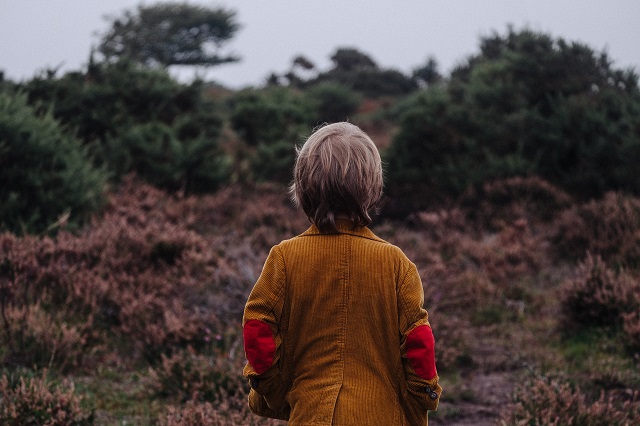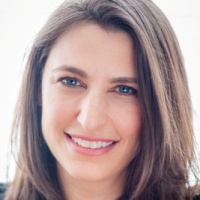“So, what do you believe? What do you think happens when we die?”
Lately I get asked this a lot.
Parties, brunches, readings—it always comes up.
I know it’s not what people usually ask novelists. Nobody’s asking me, for instance, whether the characters in my novel are based on my life, for which I’m grateful, because the answer is boring: no.
Writing my book, The Forgetting Time, inspired by the work of a man who tried to prove that consciousness continues after death, has opened me up to this sort of thing. My answer is simple, and it isn’t.
I stumbled across Dr. Ian Stevenson‘s research at a strange time in my life. I had two young children and was volunteering at a hospice.
I had thought hospice work would involve lots of talking about what-comes-next, which I was prepared for—I’d always been curious, and the thought of death didn’t freak me out. This is one of the reasons I’d thought it was good to volunteer. But actually we rarely talked about death when I was a hospice volunteer. Usually I gave the patients hand massages and guided meditations, took walks down the block with them, talked about their children, or read aloud from novels, or magazines, or the Bible—whatever they wanted. After a while, of course, they weren’t conscious anymore, and then they were gone.
Gone where? Who doesn’t ask this, when a loved one, or even an acquaintance, dies?
Around this time, a friend was cleaning out her garage and handed me a book.“Hey, you might like this one.”
It was called Old Souls and had a spooky picture of a child on the cover. I started reading it, anyway.
In the book, a journalist who wrote for the Washington Post followed around this psychiatrist from the University of Virginia while he studied children who seemed to remember previous lifetimes.
The cases (almost 3,000 of them in total) were amazing—mind-bogglingly so, especially since the professor (Dr. Stevenson) and the journalist all seemed so…reasonable. These children said they remembered being specific other people, who died a few months or years before they were born, from villages far away.
The kids knew specific things about these other people: their names, or children’s or spouse’s names, what they did, the kinds of products they sold, where they lived, how they died (and often had phobias related to the other person’s mode of death). In some cases, they even spoke regional dialects their parents couldn’t recognize that coincided with the dialects of these “previous personalities.”
My mind was blown. And it started me thinking. Why were my own kids the way they were—their different fears and attractions, their personalities? One had a temperament that shifted from mellow to intense and had insomnia and night terrors; the other came out with a broad, willful smile that had never waned.
Where did my children’s different natures come from? Did they come from a previous life? How much are our children our children?
And what if one of my sons wanted to find his “previous mother,” as some of these children apparently did? What would that be like?
“What would that be like?” is a question that often marks the gestation of a new work of fiction.
And so I started something.
I imagined some characters, the story began and I was absorbed in the storytelling. I wasn’t wondering whether or not I believed, I was simply imagining. I imagined the sceptical mom I’d be in that situation; I imagined the resistant other mother. I knew my characters would need to come to some kind of understanding or perhaps spiritual awareness that I didn’t have myself, but I kept writing anyway, hoping I’d get there.
And along the way something interesting happened. I told people what I was writing. (They always ask.) And people—perhaps a quarter of them—had stories to tell me in return. Personal stories.
One had a three year old daughter who asked her, “Remember when we were in China and we worked with the babies?”
Another’s son said, “Remember when I was big? A grown-up?”
And there was this, “Wait, wait, I used to live down that road!” (Some place he’d never been…)
And this, “Remember when we were in a big storm? And the chair hit mother? And father would only smoke one cigarette a day?” (None of this was true in his current life and the child was under two at the time he said these things.)
Or the colleague of my father’s, who turned pale and mentioned that her child had always had a fear of fire, and had spoken often of dying in one.
I kept writing, and I kept hearing these stories. I kept reading, and talking about these cases to the rational and even-keeled Dr. Jim Tucker, who continues Stevenson’s work at the University of Virginia.
And something happened along the way, moment by moment, word by word.
I started to think, Maybe it’s true. What if it’s true?
What if we were born before, and will be born again? What does that mean for how we live our lives?
I’m not in the business of giving answers. Novelists ask questions above all. The questions I’ve asked have led me personally to a path that has been meaningful for me, but everyone has to ask their own questions and find their own path.
I do think people are reborn after they die. There, I’ve said it.
But I don’t know who I was in any of my past lives, and I don’t think it matters. What matters is who I am right now, today, at this moment—how I live. What matters is what’s next.
What if it’s true?
For me, that question changed everything.
~
Author: Sharon Guskin
Editor: Khara-Jade Warren
Image: Annie Spratt/ Unsplash
~


 Share on bsky
Share on bsky





Read 2 comments and reply